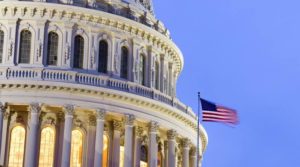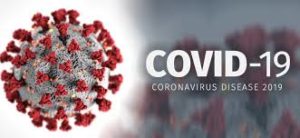
- Details
- By Press Releases
Call comes as first COVID-19 case is confirmed in Indian Country – follows congressional approval of coronavirus emergency funding bill that includes $40 million in funds for Tribes, Tribal organizations, and Urban Indian Health Organizations
From Press Release
WASHINGTON — U.S. Senators Maria Cantwell (D-WA), a senior member of the Senate Committee on Indian Affairs, and Patty Murray (D-WA), a senior member of the Senate health committee, joined U.S. Senator Tom Udall (D-NM), the vice chairman of the Indian Affairs committee, and a bipartisan group of 25 colleagues in writing to Vice President Mike Pence to request the Trump administration meaningfully engage with Native communities and Tribal leaders on their response to the 2019 novel coronavirus (COVID-19). The senators sent the letter following congressional passage of a coronavirus emergency supplemental appropriations bill that includes $40 million for Tribes, Tribal organizations, and Urban Indian Health Organizations impacted by COVID-19.

The United States has confirmed COVID-19 cases in a number of states where Tribes and urban Indian communities are located. Given these developments and past issues accessing federal resources for the Zika, Ebola, H1N1, and SARS outbreaks, Tribes and Urban Indian Organizations are concerned that federal COVID-19 response efforts and resources will not reach them.
“As you undertake your work leading the Administration’s 2019 novel coronavirus (COVID-19) response, [we] urge you to meaningfully engage with Native communities and Tribal leaders,” the senators wrote.
“The U.S. government has specific trust and treaty responsibilities to provide American Indians and Alaska Natives (AI/ANs) with comprehensive quality healthcare,” the senators continued. “While the IHS serves as the primary agency charged with provision of AI/AN healthcare, all federal healthcare-related programs and initiatives – including the COVID-19 response – share equally in the requirement to fulfill these trust and treaty obligations.”
“Additionally, to ensure proper precautions and response measures are deployed efficiently, it is imperative that Tribal and urban Indian health teams have access to Congressionally-allocated COVID-19 resources and the most up-to-date information regarding the presence of COVID-19 in their communities,” the letter concluded.
In addition to Cantwell, Murray, and Udall, the letter was also signed by Senate Democratic Leader Chuck Schumer (D-NY) and U.S. Senators Lisa Murkowski (R-AK), Jeff Merkley (D-OR), Dan Sullivan (R-AK), Ron Wyden (D-OR), Bernie Sanders (I-VT), Kamala Harris (D-CA), Jack Reed (D-RI), Tina Smith (D-MN), Elizabeth Warren (D-MA), Sheldon Whitehouse (D-RI), Jacky Rosen (D-NV), Amy Klobuchar (D-MN), Martin Heinrich (D-NM), Jon Tester (D-MT), Dianne Feinstein (D-CA), Gary Peters (D-MI), Richard Blumenthal (D-CT), Tammy Baldwin (D-WI), Cory Booker (D-NJ), Brian Schatz (D-HI), Debbie Stabenow (D-MI), Catherine Cortez Masto (D-NV), and Tammy Duckworth (D-IL).
The full text of the letter can be found HERE and below.
March 5, 2020
Dear Mr. Vice President,
As you undertake your work leading the Administration’s 2019 novel coronavirus (COVID-19) response, we urge you to meaningfully engage with Native communities and Tribal leaders. Specifically, we ask that you ensure the Administration:
Includes a representative of the Indian Health Service (IHS) on the Administration’s COVID-19 task force;
Provides Tribal leaders, Tribal health departments, and urban Indian health programs with equal access to COVID-19 related information that is provided to their state and local counterparts; and
Directs all COVID-19 resources identified by Congress for Native communities’ use to impacted IHS facilities, Tribes, and urban Indian health programs in a timely manner.
The U.S. government has specific trust and treaty responsibilities to provide American Indians and Alaska Natives (AI/ANs) with comprehensive quality healthcare. While the IHS serves as the primary agency charged with provision of AI/AN healthcare, all federal healthcare-related programs and initiatives – including the COVID-19 response – share equally in the requirement to fulfill these trust and treaty obligations.
Additionally, to ensure proper precautions and response measures are deployed efficiently, it is imperative that Tribal and urban Indian health teams have access to Congressionally-allocated COVID-19 resources and the most up-to-date information regarding the presence of COVID-19 in their communities. As the IHS noted in its February 24th announcement, the state of the COVID-19 threat “is a rapidly evolving situation, and information is likely to become dated quickly.”[1] As such, it is incumbent on the Administration to keep Indian Tribes, Tribal health departments, and urban Indian health programs apprised of any relevant developments in real time.
Thank you for your attention to these matters. We look forward to working with you to uphold the Federal government’s Tribal trust and treaty responsibilities and to engage in meaningful government-to-government relations with Indian Tribes and urban Indian communities regarding the national COVID-19 response.
More Stories Like This
Native News Weekly (August 25, 2024): D.C. BriefsUS Presidents in Their Own Words Concerning American Indians
Native News Weekly (December 14, 2025): D.C. Briefs
Wounded Knee Massacre Site Protection Bill Passes Congress
Two Murdered on Colville Indian Reservation
Help us defend tribal sovereignty.
At Native News Online, our mission is rooted in telling the stories that strengthen sovereignty and uplift Indigenous voices — not just at year’s end, but every single day.
Because of your generosity last year, we were able to keep our reporters on the ground in tribal communities, at national gatherings and in the halls of Congress — covering the issues that matter most to Indian Country: sovereignty, culture, education, health and economic opportunity.
That support sustained us through a tough year in 2025. Now, as we look to the year ahead, we need your help right now to ensure warrior journalism remains strong — reporting that defends tribal sovereignty, amplifies Native truth, and holds power accountable.
 The stakes couldn't be higher. Your support keeps Native voices heard, Native stories told and Native sovereignty defended.
The stakes couldn't be higher. Your support keeps Native voices heard, Native stories told and Native sovereignty defended.
Stand with Warrior Journalism today.
Levi Rickert (Potawatomi), Editor & Publisher
